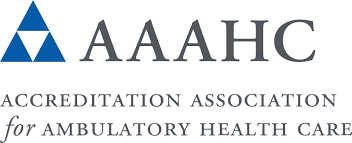With inflation hitting yet another record-breaking high—9.1% at the time of publication—hospitals and health systems continue to contend with challenging supply chain disruptions that force leaders into a constant state of putting out fires. Supply chain issues are not new. But instead of having time to plan ahead and implement…

The Accreditation Association for Ambulatory Health Care (AAAHC) has been accrediting ambulatory healthcare facilities, including ambulatory surgery centers (ASCs), for more than 40 years, with some 6,100 accredited organizations. A top philosophy of AAAHC is “1095 Strong,” which emphasizes the importance of integrating quality practices throughout a facility’s 1,095 days…
Editor's Note This Korean study finds that full COVID-19 vaccination was associated with a reduced risk of acute myocardial infarction (MI) and ischemic stroke after being infected with COVID-19. Of 592,719 patients with COVID-19 during the study period, 231,037 were included in the analysis, of whom 62,727 were never vaccinated…
Editor's Note Eleven schools have recently started nursing programs and partnerships to address the persistent nursing shortages around the country, the July 19 Becker’s Hospital Review reports. Included in the list: Yale School of Nursing in Orange, Connecticut, began an online master’s degree program. Penn Nursing in Philadelphia began an…
Editor's Note The Joint Commission on July 20 announced a new “Healthcare Workforce Safety and Well-Being” website that provides resources to help healthcare workers (HCWs) advance the safety and resiliency of the organization. The website provides links to materials developed by The Joint Commission and healthcare-related organizations such as the…
Editor's Note This study from the University of Washington, Seattle, finds that a group coaching program designed to reduce stress and teach resilience was associated with improved mental health outcomes in healthcare workers (HCWs) during COVID-19. A total of 153 participants provided informed consent for the study with a mean…
Editor's Note On July 19, Centers for Disease Control and Prevention (CDC) advisers said the 26 to 37 million adults in the US who have yet to get a COVID-19 vaccination should consider the “more traditional” vaccine Novavax, Modern Healthcare July 19 reports. Novavax is the “first so-called protein vaccine”…
Editor's Note This study, led by the University of Miami and sponsored by the CDC, finds that unvaccinated first responders (eg, law enforcement officers, firefighters, and others) were more likely to develop COVID-19 and less likely to believe in the effectiveness and safety of vaccines than their vaccinated counterparts. Of…
Editor's Note This study led by researchers at the University of Colorado School of Medicine, UCHealth, Aurora, finds an association between healthcare workers (HCWs) reporting high childcare stress and burnout during COVID-19. The researchers surveyed 58,408 HCWs in 208 organizations from October 2021 to May 2022 on their concerns about…
Editor's Note This national survey study led by researchers from Stanford University finds that the COVID-19 pandemic was linked to disparities in the receipt of timely cancer care in Black and Latinx adults. Of 1,240 adult cancer patients surveyed, Black and Latinx respondents had greater odds of : involuntary treatment…